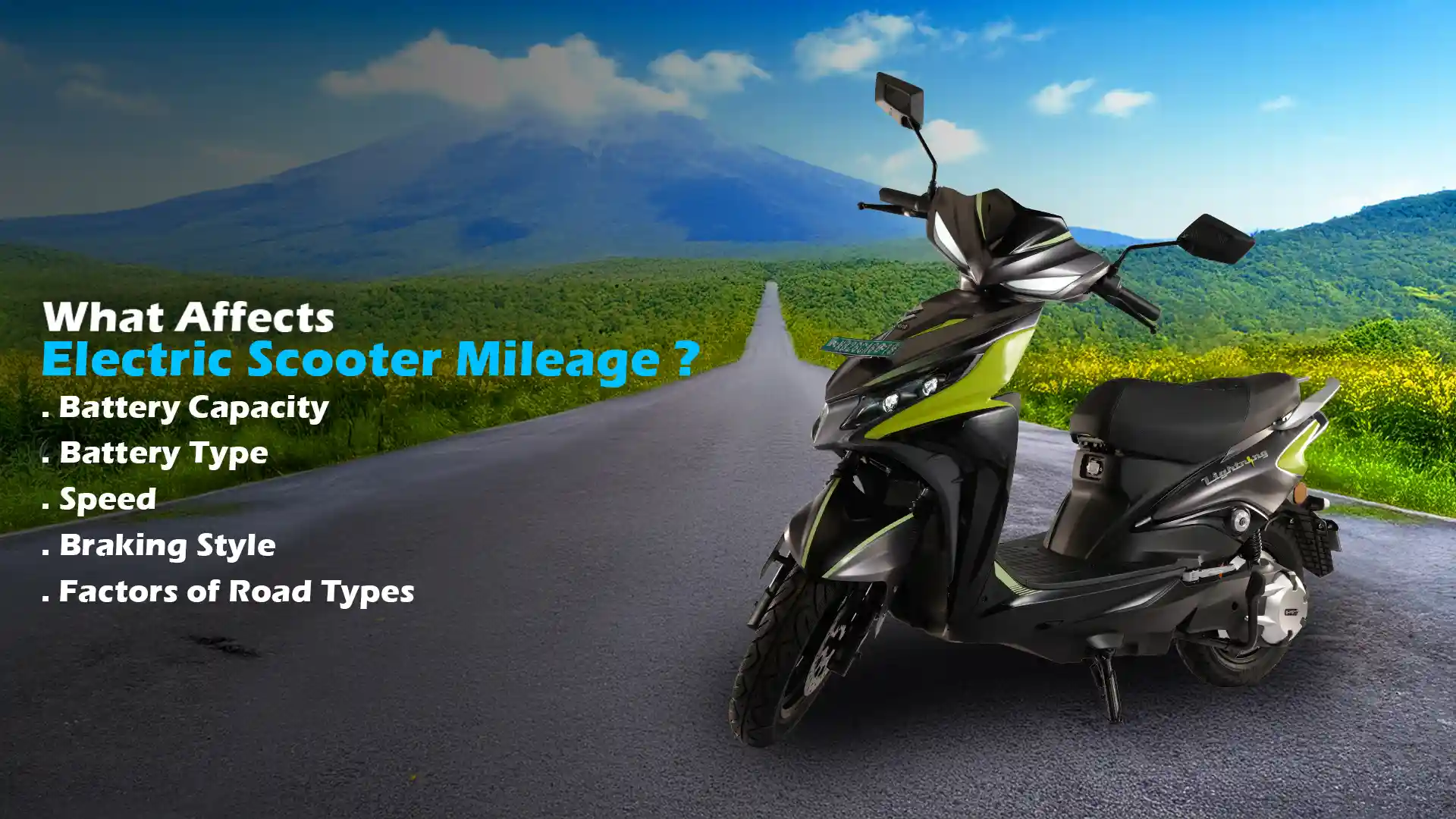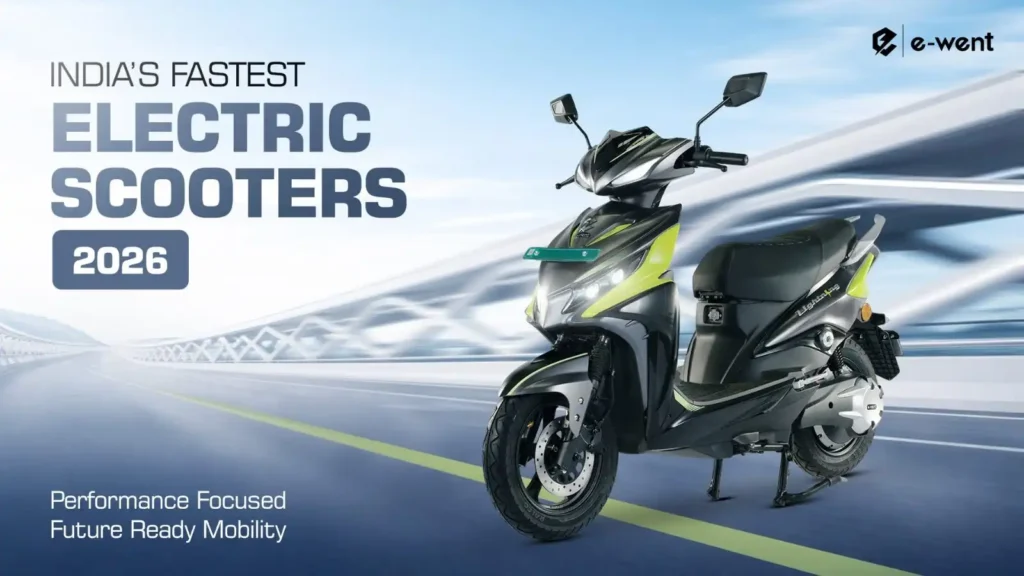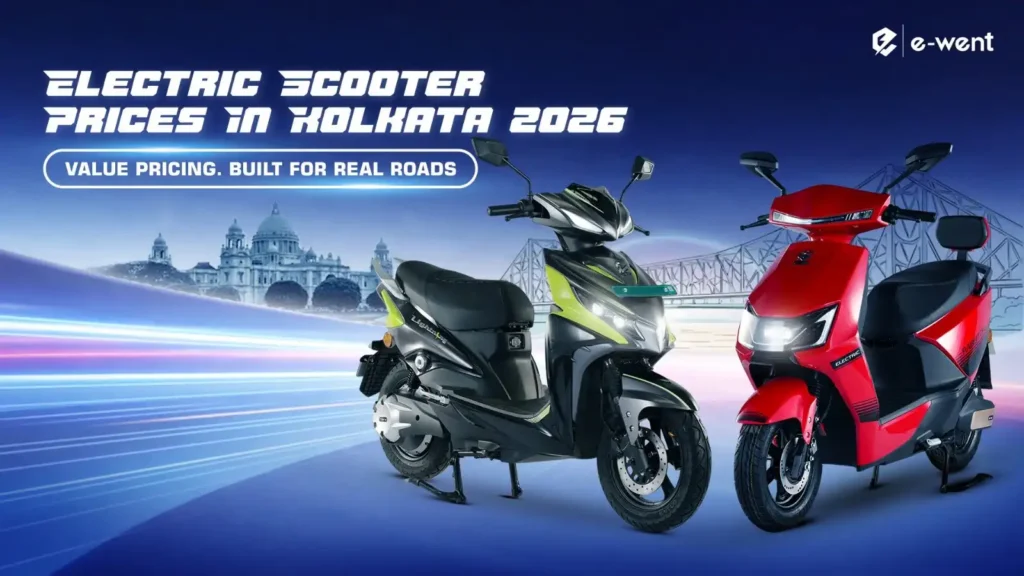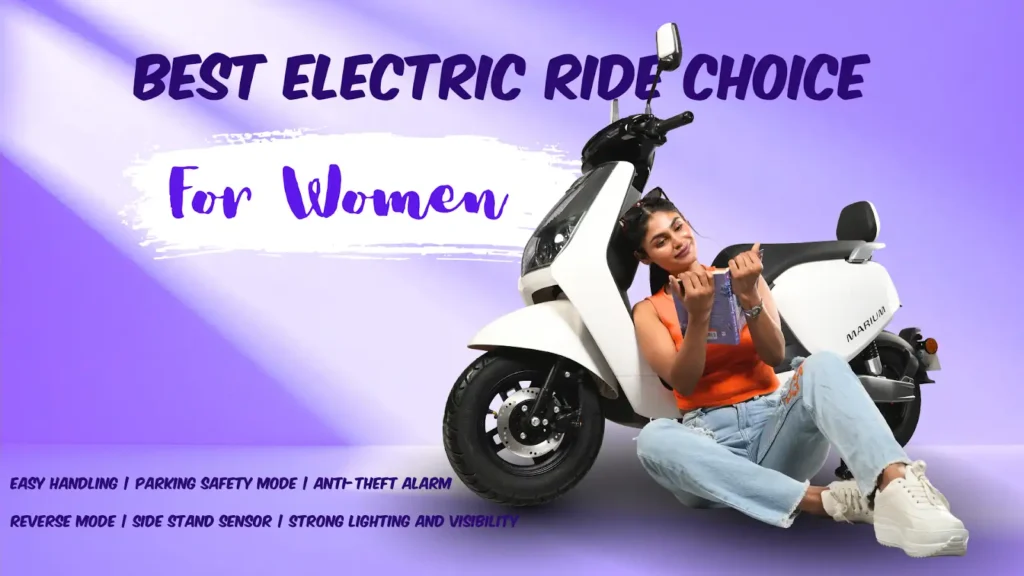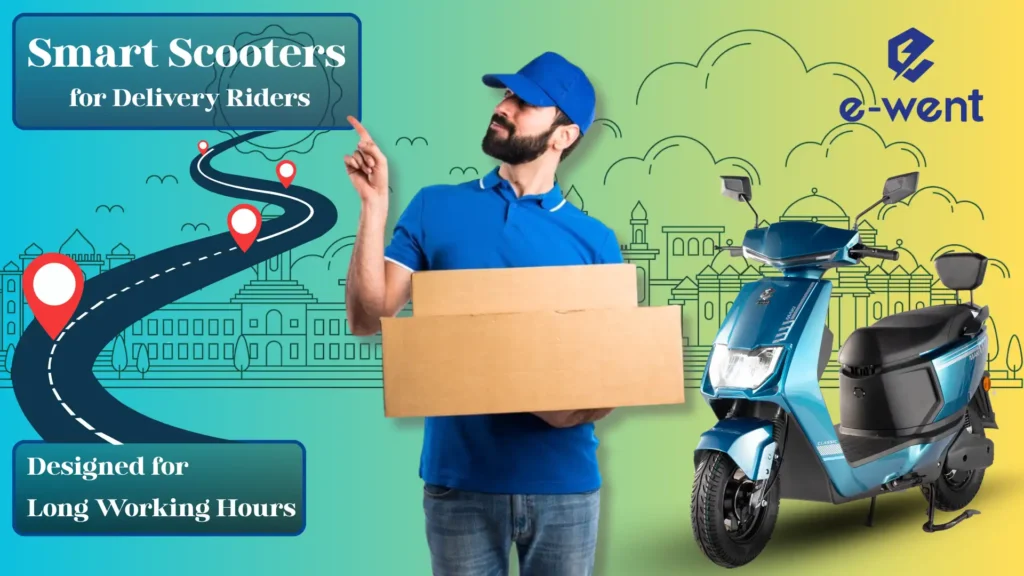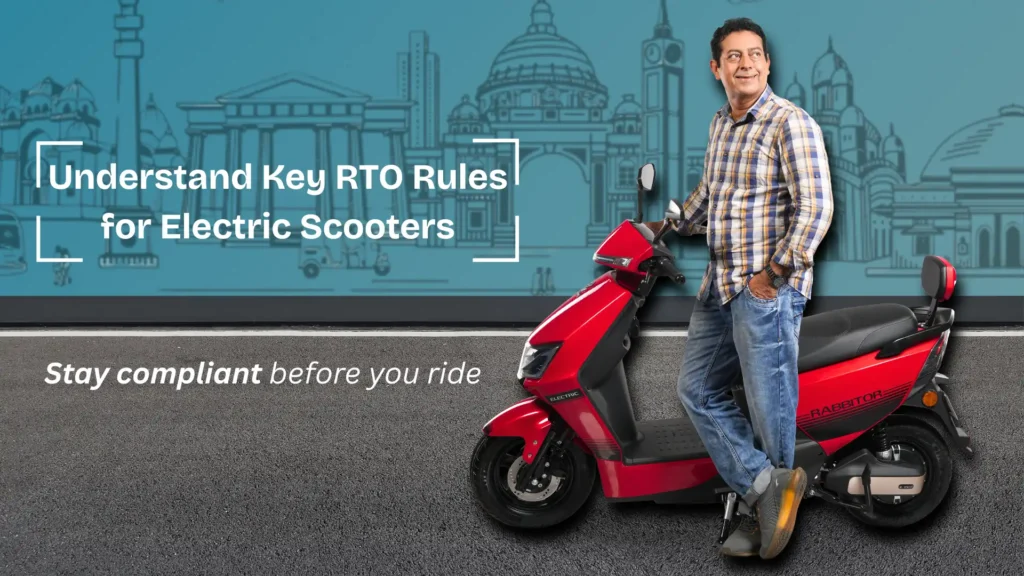Electric scooters have become a popular choice for daily commuting. People are not just looking for eco-friendly rides, they also want electric scooter with best mileage that can cover long distances without frequent charging. Achieving optimal mileage involves understanding factors like battery capacity, motor efficiency, rider weight, and terrain. Models like the Lightning electric scooter from E-Went offer impressive ranges, but performance depends on efficient use and maintenance. Here, we will cover what affects electric scooter mileage.
Key Factors Affecting Mileage of Electric Scooter
Several factors influence how far your scooter can travel on a single charge:
Battery Capacity
Larger batteries typically offer a longer range, enabling you to travel farther on a single charge. However, heavier batteries can slightly reduce efficiency, so balance is essential.
Battery Type
Battery type is crucial for scooter mileage. Lithium-ion (Li-ion) batteries provide higher energy density, longer lifespan, and faster charging, leading to better range. In contrast, lead-acid batteries are heavier, have lower efficiency, and degrade faster, reducing range. Battery health, charge cycles, and maintenance also impact performance, with Li-ion batteries typically offering superior mileage.
Speed
High-speed riding consumes more energy and reduces the distance your scooter can cover.
Motor Efficiency
Motor efficiency directly impacts scooter mileage. High-efficiency motors convert more electrical energy into movement, reducing battery drain and extending range. Brushless DC motors (BLDC) are common in EV scooters, offering better performance and less power loss than brushed motors. Efficient motor design, like optimized torque and speed control, ensures longer mileage with lower energy consumption.
Braking Style
Braking style affects scooter mileage. Regenerative braking recovers energy while slowing down, extending range. Standard braking, on the other hand, wastes energy as heat, reducing efficiency. Using regenerative braking whenever possible helps conserve battery power and improve overall mileage.
Scooter Weight
Scooter weight affects mileage. Heavier scooters require more energy to move, reducing efficiency and range. Lighter scooters consume less power, offering better mileage. The scooter’s design and materials (e.g., aluminum vs. steel) influence weight, with lighter builds generally optimizing battery life and extending the range.
External Conditions
Proper tyre pressure, smooth terrain, and favourable weather improve efficiency, while hot, cold or wind can reduce electric scooter mileage.
Factors of Road Types
Different road conditions impact mileage differently.
Smooth Roads
Riding on flat, smooth roads enables your scooter to operate efficiently, resulting in improved mileage and consistent performance. Less resistance means the battery lasts longer, and energy use stays low.
Bumpy Roads
Bumpy roads reduce electric scooter mileage by increasing rolling resistance, straining the motor, and draining the battery faster. Rough terrain also impacts suspension efficiency and rider balance, leading to more energy use per km and lower overall range.
Rough Roads
Rough roads lower electric scooter mileage by increasing energy consumption. Uneven surfaces cause higher rolling resistance, which strains the motor and depletes the battery faster. Additionally, frequent vibrations and jolts reduce ride efficiency, leading to reduced range and performance over time.
Hilly or Inclined Roads
Slopes require more power from the motor to climb, which reduces overall range. Frequent uphill rides can quickly drain the battery compared to flat terrain.
High Traffic Areas
S͏top-a͏nd-go traffi͏c forces repeated acceleration and br͏aking, consuming more͏ energy͏. Congested roads can significa͏ntly lower milea͏ge, so smoother, les͏s crowded routes͏ are prefera͏ble f͏or maxi͏mum eff͏iciency.
Real-World Experience – Factors that Affect Mileage of Electric Scooters
What are the factors that affect the range of electric scooters?
byu/Hiboy_Official inElectricScooters
Factors that could affect our electric scooter range
byu/wednesdayliz inElectricScooters
Common Myths About the Factors that Affect Mileage of EV Scooters
- Myth: Many riders believe bigger scooters automatically give better mileage.
- Reality: In reality, efficiency depends on multiple factors like battery capacity, motor performance, weight, and riding style.
- Myth: Mileage is Only Affected by Battery Size.
- Reality: While a larger battery generally provides more range, other factors like the motor’s efficiency, the rider’s weight, tire pressure, road conditions, and the scooter’s overall design also affect the mileage. A well-designed scooter with a smaller, more efficient motor could outperform a larger battery scooter with poor design.
Lighter vehicles need smaller batteries and are more efficient.
– A Research by Aathira Kamath and Arjun Saxena, Under-Graduate Student, Dept. of Mechanical Engineering, Rajiv Gandhi Institute of Technology, Kottayam, Kerala, India (Source)
- Myth: Tire pressure doesn’t affect the scooter’s mileage.
- Reality: Low tire pressure can drastically reduce your scooter’s efficiency, as it increases friction and requires more energy to move. Keeping tires inflated to the recommended pressure ensures that the scooter operates at maximum efficiency and helps conserve battery life.
Every 1 drop in PSI resulted in about 3% less mileage.
– Tested by Rasmus Barslund who is the EV Reviewer and Founder of ERideHero (Source)
- Myth: The weight of the scooter itself doesn’t matter in terms of range.
- Reality: The weight of the scooter plays a role in how much power is needed to move it, and thus affects the range. Heavier scooters require more energy to operate, and while larger scooters often have larger batteries, the weight itself is a factor. Lightweight scooters, in general, are more energy-efficient.
How to Maximize Electric Scooter Mileage
To maximize electric scooter mileage, maintain proper tire pressure and avoid rapid acceleration or riding at high speeds. Utilize regenerative braking to recover energy, and ride on flat terrain whenever possible to reduce power consumption. Keep the scooter lightweight by avoiding carrying excess weight and regularly charge the battery within the 20%-80% range. Store the scooter in moderate temperatures and perform regular maintenance to ensure optimal performance and longevity.
Learn more about the tips for maximizing the mileage of electric scooter.
Conclusion
Electric scooter mileage is influenced by factors like riding habits, terrain, weather, and scooter maintenance. By maintaining proper tire pressure, riding smoothly, and avoiding extreme conditions, you can maximize your scooter’s range and enjoy longer, more efficient rides.
FAQs
Does the brand of electric scooter affect mileage?
Yes, reputable EV scooter brands like E-Went often use better motors and batteries, delivering mileage closer to claims.
How does rider weight affect electric scooter mileage?
Heavier riders require more energy to move, which can drain the battery faster and reduce range. Lighter riders usually get better mileage, as the scooter needs less power to maintain speed.
Do weather conditions impact electric scooter mileage?
Yes, extreme temperatures can affect battery efficiency. Cold weather slows down battery chemistry, reducing range, while excessive heat can overheat the battery, lowering its lifespan and performance.
How does riding speed impact scooter mileage?
Riding at higher speeds increases power consumption. The faster you go, the more energy the motor uses, leading to quicker battery drain. Keeping a steady, moderate speed helps maximize mileage.
Can terrain influence electric scooter mileage?
Absolutely! Riding on hilly, rough, or uneven terrain demands more power from the scooter’s motor, which reduces range. Flat and smooth roads allow the scooter to operate more efficiently, extending mileage.
Does tire pressure affect electric scooter mileage?
Yes, low tire pressure increases rolling resistance, causing the motor to work harder and drain the battery faster. Regularly checking and maintaining the recommended tire pressure ensures better energy efficiency and range.

